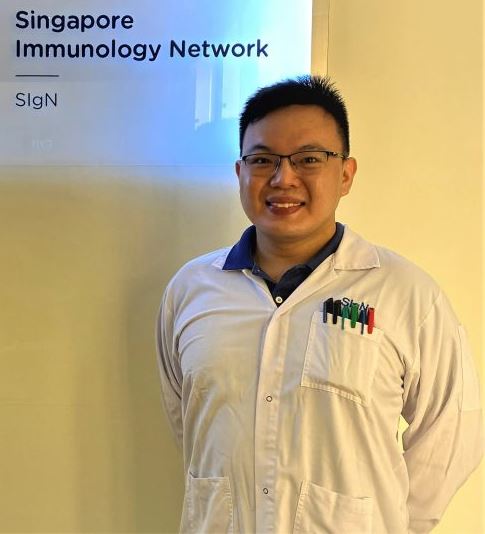Profile

I am a cellular immunologist keenly interested in applying fundamental knowledge of molecular mechanisms regulating T cell phenotypes to making novel discoveries in T cell-focused cancer immunotherapy. I am especially interested in applying screening techniques to discover new biological regulatory mechanisms in T cells that can be targeted for clinical therapy. My career ambition is to lead my own research group leveraging cutting-edge technology to deliver innovative solutions to overcome chokepoints in cancer immunotherapy in close partnership with clinicians. During my PhD training at Harvard and the Dana-Farber Cancer Institute as an A*STAR NSS-PhD scholar, I gained extensive experience with high-throughput screening in mouse primary CD8 T cells using both CRISPR gene editing and drug libraries. I engineered and optimised an in vivo CRISPR screening pipeline for tumour-infiltrating CD8 T cells in the B16F10 mouse melanoma model. Using this system, I ran both preliminary and validation screens that led to the identification of the arginine methyltransferase CARM1 as a potential cancer immunotherapy target with dual roles in both T cells and tumour cells. My firsthand experience in setting up, optimising, and running CRISPR screens was key to conceptualising the work proposed in this application, and allowed me to adapt such a high-throughput screening platform to a mouse model of a different cancer (HCC). In parallel with my screening work, I also designed and set up an in vitro drug screening pipeline using multiparameter flow cytometry as a readout to identify potential epigenetic regulators of CD8 T cell effector function. This work led to the discovery of a novel role for the histone deacetylase HDAC3 as a negative regulator of the cytotoxic effector programme of CD8 T cells. Together, these experiences instilled a keen appreciation for the complexity of immune-tumour interactions, the importance of keeping an open mind in handling data that appear to contradict conventional wisdom, and the indispensable role of intellectual rigour in doing cutting-edge science.